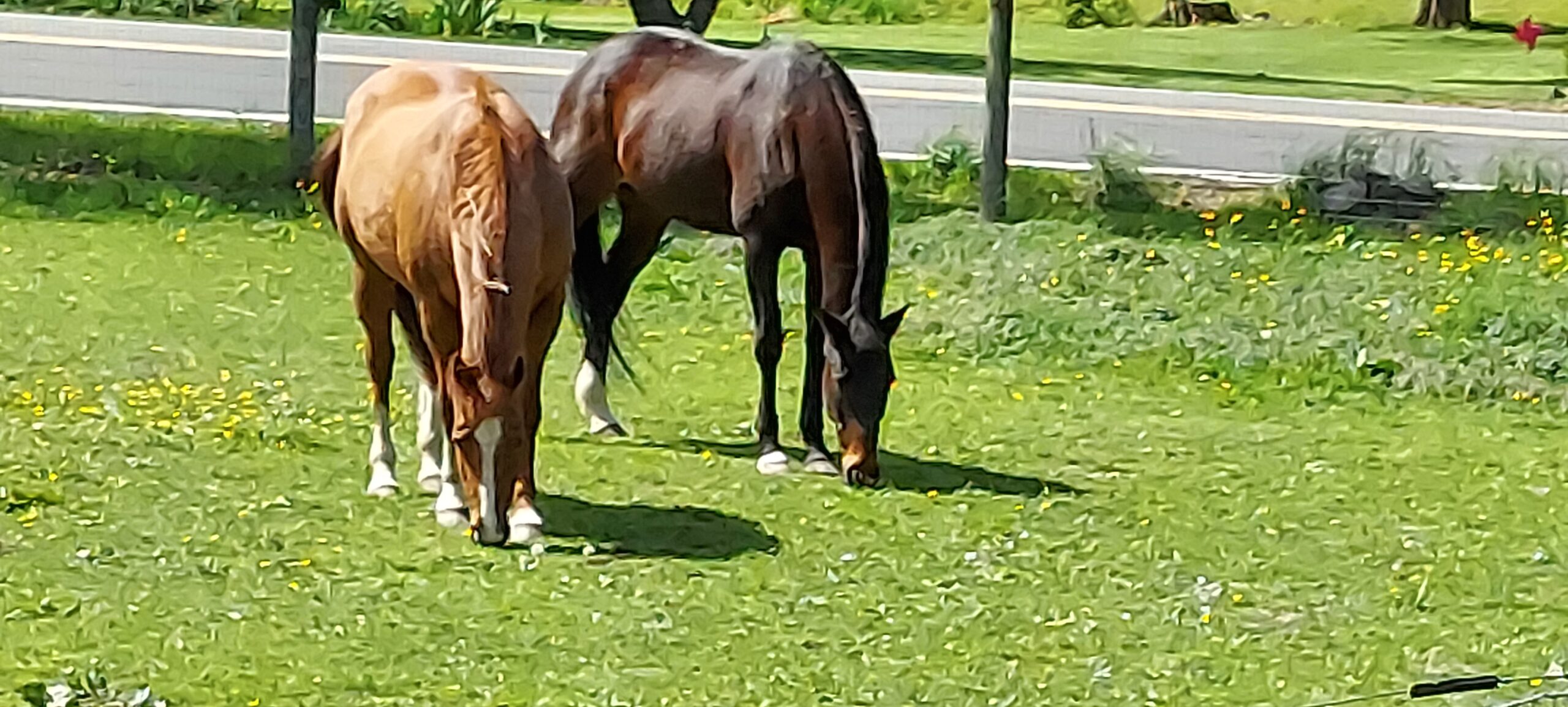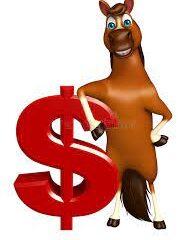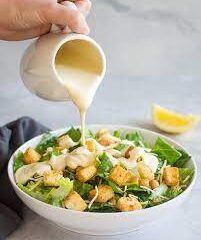Feeding the Senior Horse

One of the most rewarding calls I receive is for senior horses. There is nothing that brings as much personal fulfilment as putting together a feeding program for a retired lesson horse that has spent the past 20 years carrying students. Think about the book that lesson horse could write or how many champion riders started on her back.
Seniors deserve special treatment because most of them have earned it and some of them are carrying the scars of their careers.
When Does a Horse Become a Senior?
Probably the most frequent question I’m asked is “When should I start my horse on senior feed?”.
My answer is, “When she’s ready.”
Humans typically need a clear line drawn as to “when” relating to anything age related. The horse industry has suggested that age 20 is the time to consider a horse “senior”. The reality is much more flexible.
Consider “senior” as a condition rather than an age. Sometimes 30 year old horses are still doing fine on hay and ration balancer while a four year old rescue would benefit from a senior feed.
Like humans senior horses begin to break down as they age but they will do so at different rates. Like any individual, they all carry the baggage of their past with them. Everything they’ve been fed, injuries, workload and other factors will play a role in determining when a senior feed is appropriate.
At the time of this writing I have two mares, one is 25 the other 27 years old and neither is on a senior feed. The 27 year old is still on forage and balancer while looking and acting half her age. These two mares are the title image. Skippy, the Chestnut is 27, Raven is the bay OTTB.
What are the Factors to Determine a Senior Condition?
Teeth
One factor many seniors have in common is poor dentition. As a horse ages their teeth will eventually become an issue from loss or wear or both.
Hay and forage should be the primary source of calories for a horse. Without healthy teeth it becomes difficult or impossible for a horse to process forage. At this point the forage component of their feed must be replaced.
Digestive Inefficiency
As horses age it becomes more difficult for their digestive system to process feed and forage. In this condition a horse will benefit from a high fiber low NSC feed. A senior feed would benefit from supplemental probiotics and have a large amount of digestible fiber.
Other horses can suffer from digestive inefficiency. Rescues suffering from neglect are one example. When that low body condition score horse backs off of the trailer a good senior feed should be part of their recovery plan.
Medical rehab horses are another example of a senior feed application. Colic surgery, long bouts of stall rest causing anxiety and poor eating habits call for something highly digestible to help the horse.
General Lack of Condition
Older horses will experience muscle loss and lack the ability to replace or repair muscle as part of the aging process.
A changing exercise program will contribute to this. That reliable lesson horse goes from working four or five days each week drops down to one or none things will start to lose tone.
Quality senior feeds will have a higher level of protein and an amino acid profile designed to address a changing metabolism.
What Makes a Senior Feed a Senior Feed?
Complete Feed or Concentrate?
Before we cover any ground in this section we need to be clear on the two types of senior feeds available because they are NOT interchangeable. Having two types of feed labeled “senior” causing a great deal of confusion and can have a serious effect on outcomes.
To understand more about the difference between “complete” feed and “concentrated” feed follow this link:
If a horse is suffering from poor dentition or a medical condition restricting forage intake then a senior complete feed is called for.
Complete feeds will have more digestible fiber than concentrated feeds along with fewer calories because it’s designed to be fed at a minimum rate of six pounds per day for a 1,000 pound horse up to 15 pounds per day.
Feeding a concentrated senior feed will provide many more calories and fat so are designed to be fed at a much lower rate because it is supplementing a normal intake of forage.
One important difference that will also give you a clue when you are reading feed tags is the level of selenium. The selenium level for a complete feed should be around 0.3 ppm while a concentrated feed will be around 0.6 ppm. This can be significant when a concentrated feed is fed at three to four times it’s designed feed rate. Selenium toxicity becomes a real concern.
So, simple, bad teeth or restricted forage complete senior feed is the ticket. If your older horse is eating hay and grass just fine then a concentrated senior feed is called for.
Easy Hydration
Most quality senior feeds are designed to hydrate more easily than other feeds. The pellets are softer so they will break down more quickly when soaked. They will also easily hydrate with saliva so if your horse is not doing well with hay but still has some bearing surface on their teeth you might nor need to soak their feed.
Probiotic Support
Because horses lose digestive efficiency as they age some additional probiotic support is helpful for them.
Additional Protein and Amino Acid
Older horses require more high quality protein and amino acids to help support muscle and tendon support.
“She’s losing topline,” is something I hear frequently when dealing with seniors. No sh… kidding Sherlock! She’s 27 and lost her job so of course she’s losing topline! We don’t want it to be too far gone but please don’t expect “A” toplines from every senior.
Can you Feed Senior Feeds to All Horses?
The answer is a qualified “Yes, but…”.
Senior feed can be fed to any mature horse with no ill effect. However, a healthy mature horse, especially a horse in work would feel and perform much better on a feed that has been formulated for their age and condition.
It is easy to just put the whole barn on a senior feed and call it a day but the nine year old working 5 days a week is going to need more feed to get the job done. Keep in mind that concentrated senior feeds have been designed to support an older horse in limited work so the energy balance is much different than a performance feed.
For barns that have new horses arriving regularly a complete senior feed is great to keep on hand because you can put a new arrival on it without being too concerned about gastric problems. Once the new arrival settles in it’s an easy transition to her permanent feeding program.
There are other options to meeting a senior’s special requirements such as using soaked forage cubes or pellets along with a balancer or concentrated feed but there really aren’t any advantages to this program over feeding a single complete feed.


